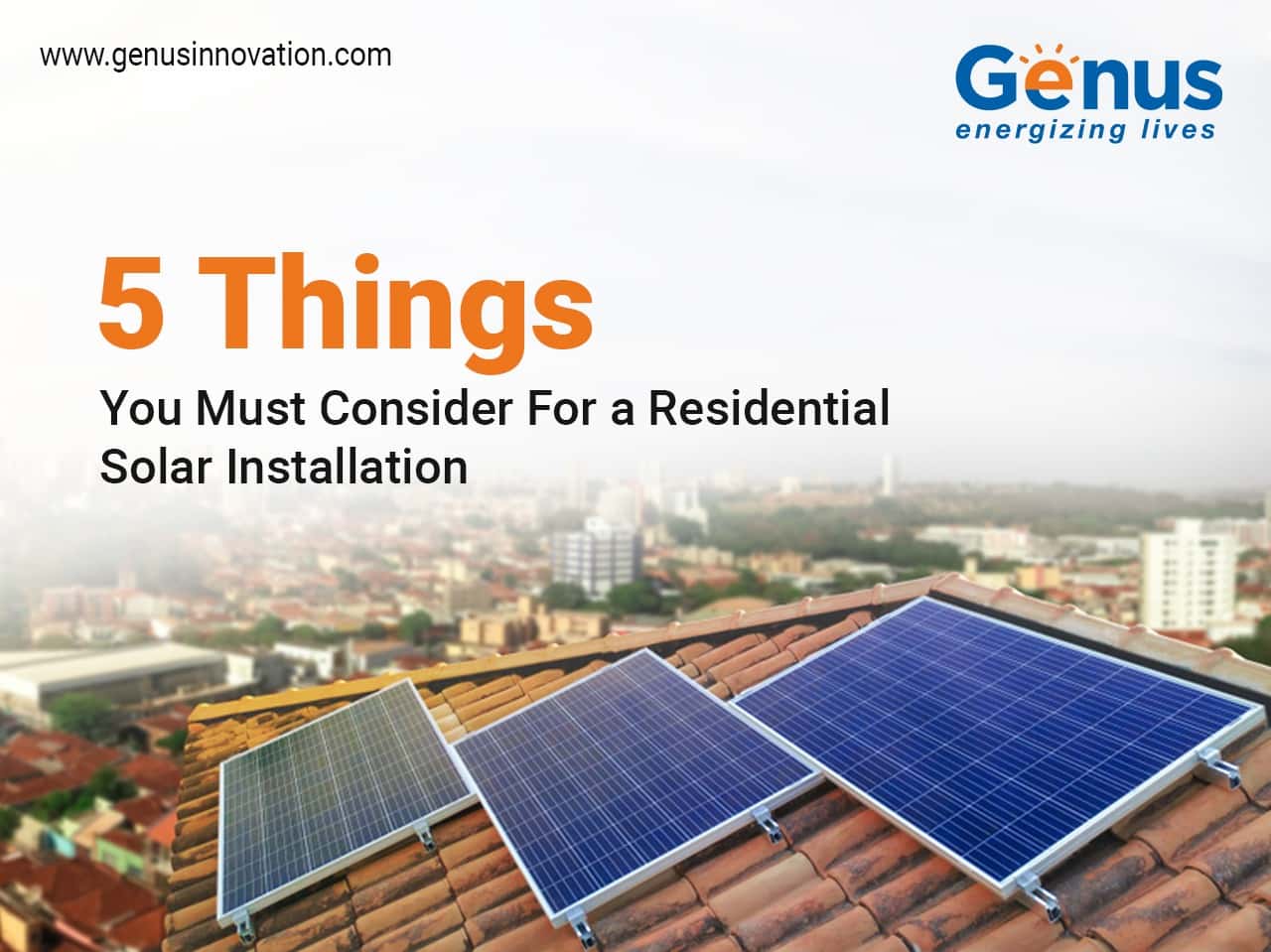Stainless Steel Tube,Stainless Steel Seamless Tube,Stainless Steel Pipe,Stainless Steel Pipe Suzhou Yuhaoxuan Electromechanical Co., Ltd , https://www.essiont-pipeline.com
5 Things You Must Consider For a Residential Solar Installation
Residential solar power is becoming increasingly popular, and for good reason. With rising energy costs and a growing emphasis on sustainability, more homeowners are turning to solar energy as a smart, long-term solution. Not only does it offer significant savings on electricity bills, but it also plays a key role in reducing carbon footprints and supporting environmental conservation. In fact, the adoption of residential solar has grown by an impressive 11 times over the past five years, showing just how much interest there is in this clean energy source.
However, while switching to solar may seem straightforward, it's important to understand the key factors that can impact the success of your installation. From choosing the right panels to planning the layout, each decision plays a crucial role in maximizing efficiency and return on investment.
In this article, we’ll walk you through the top five things to consider before installing a residential solar system. Whether you're a first-time homeowner or looking to upgrade your current setup, these insights will help you make an informed and confident choice.

### 5 Things You Must Consider For a Residential Solar Installation
#### 1. **Roof Condition and Layout**
Before anything else, your roof must be in good condition to support solar panels. A damaged or weak roof could lead to costly repairs down the line. Make sure your roof is structurally sound and has enough space to accommodate the panels. Also, consider the orientation and angle of your roof—south-facing roofs typically receive the most sunlight, which increases efficiency. If your roof is shaded by trees or other structures, you might need to trim or relocate them to maximize sun exposure.
#### 2. **Choosing the Right Type of Solar Panels**
There are several types of solar panels available, each with its own advantages and disadvantages:
- **Monocrystalline panels** are known for their high efficiency and sleek design, making them ideal for homes with limited space.
- **Polycrystalline panels** are more affordable but slightly less efficient than monocrystalline ones.
- **Thin-film panels** are lightweight and flexible, but they require more space and have lower efficiency.
At Genus, we offer high-quality solar products designed for durability, performance, and reliability. Whether you're looking for residential solar panels or a solar inverter battery, we’ve got the right solution for you.
#### 3. **Optimal Location and Sun Exposure**
The location of your home is a critical factor in determining how much energy your solar system can generate. Ideally, your panels should face south (in the Northern Hemisphere) to capture the most sunlight throughout the day. Even if your home isn’t perfectly positioned, modern solar technology allows for some flexibility. However, large obstructions like tall buildings or dense tree coverage can significantly reduce efficiency.
It’s also worth noting that solar panels still work on cloudy days, though at a reduced capacity. To compensate for lower light conditions, you can install additional panels or use a hybrid system that combines solar with grid power.
#### 4. **Financing Your Solar Installation**
Solar installations can be a significant upfront investment. Before proceeding, it's essential to evaluate your budget and explore financing options. Many homeowners choose to take out a loan, while others opt for a hybrid system that uses both solar and grid power. At Genus, we offer cost-effective solutions that provide great value without compromising on quality. Our solar inverter batteries are designed to enhance system performance and ensure reliable power supply even during outages.
#### 5. **Calculating Your Break-Even Point**
One of the main attractions of solar energy is the long-term savings on electricity bills. However, it's important to calculate how long it will take for your investment to pay off. The break-even period varies depending on the size of your system, local electricity rates, and the efficiency of your panels. A well-designed residential solar system can typically break even within 3 to 4 years, after which you'll start seeing pure savings.
### Wrapping Up
By considering these five key factors—roof condition, panel type, location, financing, and break-even time—you can make a well-informed decision when choosing a residential solar setup. Switching to solar not only helps you save money but also contributes to a cleaner, greener future.
At Genus Innovation, we’re committed to providing premium solar solutions tailored to meet your needs. Explore our range of products today and take the first step toward a sustainable and cost-effective energy future. **Connect with us** to learn more and get started on your solar journey.